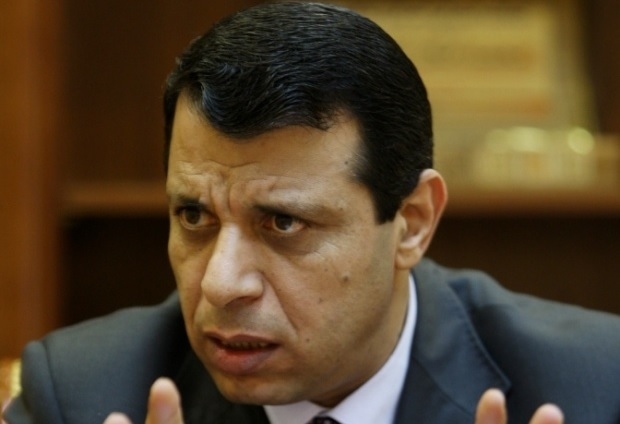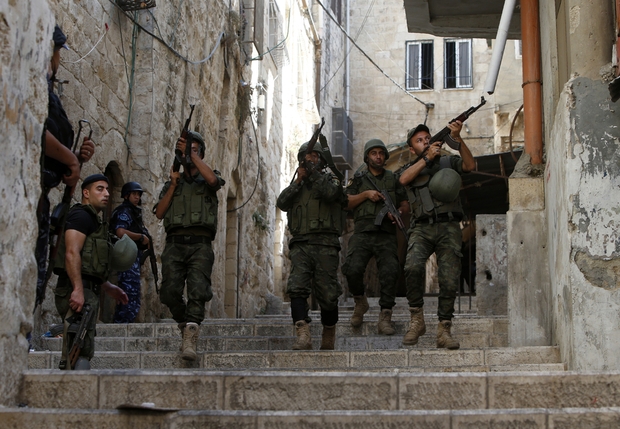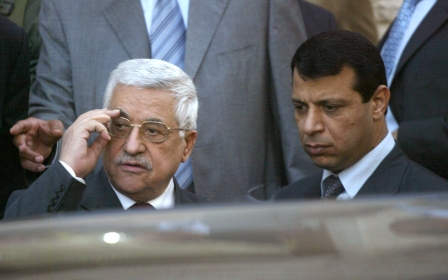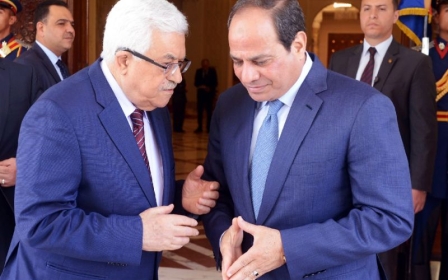As Fatah meets, a time bomb ticks in Palestinian camps
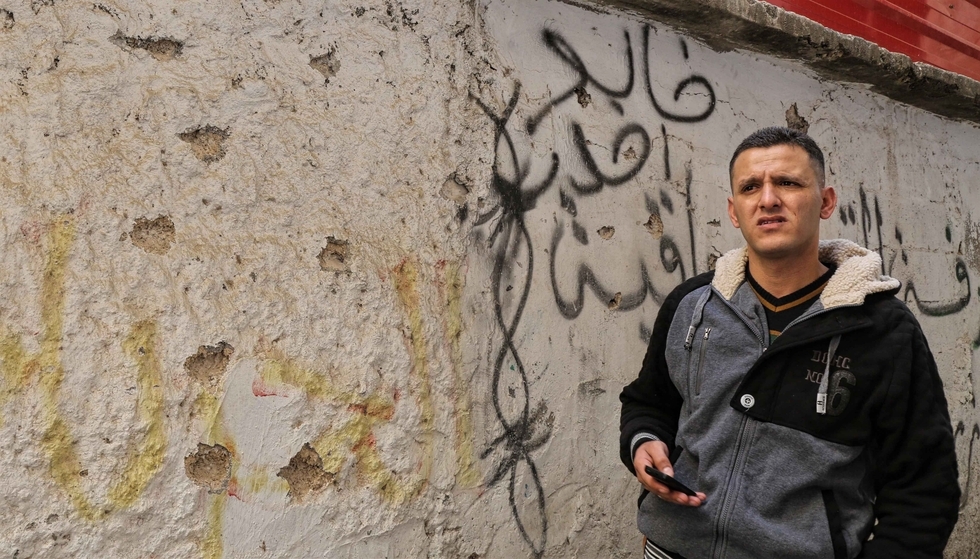
The Palestinian camps are on edge. Often they are subject to raids and arrests by the Palestinian Authority (PA), as its forces try to locate those it accuses of murder, arms smuggling and drug trafficking.
But those clashes have carried more political weight this year, as Fatah’s seventh conference, which began in Ramallah on Tuesday, decides the future direction of the organisation.
'We are the pulse of the revolution and the sons of Fatah, not the sons of Dahlan or Mahmoud Abbas'
- Mohammad Abu Draa, resident of Balata
Fatah has been riddled with internal division since its last conference in 2009, with talk of the need for a successor to President Mahmoud Abbas, 81, although he not yet signalled he is ready to step down.
Among those vying for power are Mohammad Dahlan, the former leader of Fatah and a bitter rival of Abbas, who has been exiled from Gaza and the West Bank. Dahlan’s supporters fear that this week’s conference will see his allies further removed from key positions.
The PA says it is enforcing the law and prosecuting criminals. But others allege they are being targeted for political motives, as opposing factions within Fatah seek to arms themselves.
“We are the pulse of the revolution and the sons of Fatah,” said Mohammad Abu Draa, 30, a resident of Balata who is wanted by the Palestinian Authority, “not the sons of Dahlan or Mahmoud Abbas.”
Balata is the largest refugee camp in the West Bank, home to at least 27,500 registered refugees. It takes about five minutes walking through the narrow alleyways and negotiating the cramped corners to reach the house where seven men wanted by the PA were still asleep after a restless night, fearful of night raids by the Israeli army and Palestinian security forces.
Fatah re-elects Abbas at first congress in seven years
Hatem Abu Rezeq, 31, had only just awoken. He came out, holding a cup of tea and his phone, to show us the bullet holes in the wall that the Palestinian forces had left the night before.
The spark behind the discontent in the camp was, he said, rampant unemployment among the young.
“The unemployment rate is more than 60 percent, which drives the young to commit offences. What do you expect?”
Alleged abuses at the Palestinian Authority’s central prison in Jericho have long been documented by human rights organisations. According to Abu Riziq, being sent there equates with torture – and possibly not coming out again.
“The people of Balata have rebelled against the idea of surrendering to the authorities,” he added. “Each year they [the PA] mount a campaign and arrest us, then send us from one investigation centre to another.
“The last stop is the prison, for two, three, four months, you get tortured and crucified. You can’t blame anyone for not turning themselves in. Anyone who enters prison knows that he won’t be out for four or five months.”
READ: Is Fatah conference the start of change or the deepening of a crisis?
Mohammad Abu Draa, 30, who is also wanted by the Palestinian Authority, denied that he supported Dahlan. “They claim that we are part of Dahlan’s group but we do not belong to Dahlan’s group or any other group,” he said, adding that he belonged to Abu Ammar, the historical name for late Palestinian leader Yasser Arafat.
“We are the sons of the Fatah movement. We refuse for anyone to label us as members of any other political party.”
'We are not targeting any other parties, any citizen, or any other particular area'
- Akram Al-Rjoub, governor of Nablus
For its part the authority has said that it is only carrying out normal security duties in the camps of the West Bank and that they are not politically motivated.
Akram Al-Rjoub, the governor of Nablus, said that “doing our duty doesn’t mean we are targeting Balata camp or any other camp. There is a group of wanted men accused of murder. We are following these suspects to arrest them and our goal is to bring them to justice.
“We are not targeting any other parties, any citizen, or any other particular area. We are targeting those suspects to put them in front of the law. Nothing more, nothing less.”
Authority accused of allowing Israeli incursions
But the situation is not just tense in Balata. Clashes between PA forces and unidentified gunmen in the al-Aqaba neighbourhood, in Nablus on 16 November left one woman dead and three PA officers wounded among others.
Residents there are angered by the behaviour of PA security forces, not least their inaction against daily Israeli incursions into the camps.
“The men, they want guarantees for their safety if they surrender,” he added, so that what happened to “Abu Ezz Halaweh in Nablus won’t happen with them.”
Halaweh, a former leader of Fatah’s Aksa Martyrs Brigade and captain in the Palestinian Police, was beaten to death in custody amid allegations that he killed two PA security personnel.
Over in Jenin there is similar disillusion. The first thing you notice on entering the camp is the sheer number of young people sitting in roadside cafes.
READ Peace in Palestine: For Donald Trump, read Tony Soprano
Azmi Eyad, 20, is one of those who left the school at the age of 17 to find work and help his family. He’s had little success, and explained that the only way to find a job is through favouritism.
But the problem is made worse, he said, by the PA cracking down on political parties in the camp under the guise of arrests.
“I’m not against them arresting criminals,” he explained “but I am against the authorities arresting those who are resisting the Israeli occupation under the pretext of security coordination.
'You won’t see the Palestinian forces here unless they want to make an arrest or stop a protest'
- Mohammad Abu Alhaiga, 39, resident of Jenin
Mohammad Abu Alhaiga, 39, agreed. “Most of those young men without any prospects have to support one of the political parties if they want to get a job. “You won’t see the Palestinian forces here unless they want to make an arrest or stop a protest.”
Abu Alhaiga pointed out individuals in the street: each was now banned from travelling, their freedom of movement curtailed by order of the Palestinian Authority or Israel.
Others complained to Middle East Eye about how it’s difficult to receive a good education in a system where there are 55 students in a single class. The only options left for most are resistance or political activism – but then that comes down to which parties you chose to support.
'We refuse to obey the orders of Abbas'
At the Al-Amari camp in Ramallah, protests erupted after Abbas ousted Fatah lawmaker Jihad Tumelih, who organised a meeting which was attended by supporters of Dahlan.
Demonstrators torched tyres at the camp entrance. When they refused to stop, Palestinian security forces deployed tear gas and rubber bullets.
'One of the reasons that young people want to commit crimes is through the sense of social injustice accumulated throughout history'
- Ahmad Hannon, Department of Refugee Affairs, PLO
Ahmad Hannon is director of the department of refugee affairs for the PLO. He said that the economic problem in the camps had been made worse as residents do not have another source of income.
READ: The one-state reality requires a radical rethink on Palestine-Israel
The answer, Hanoon said, is not through politics but by raising social awareness among the population. But that, he added, takes time and effort from both the people and the PA.
And in the camps, they’re running out of time and patience.
New MEE newsletter: Jerusalem Dispatch
Sign up to get the latest insights and analysis on Israel-Palestine, alongside Turkey Unpacked and other MEE newsletters
Middle East Eye delivers independent and unrivalled coverage and analysis of the Middle East, North Africa and beyond. To learn more about republishing this content and the associated fees, please fill out this form. More about MEE can be found here.


